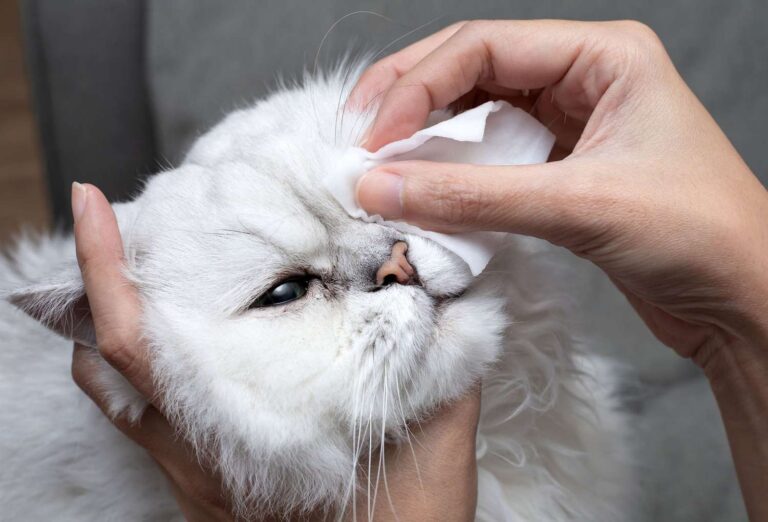Have you ever noticed your cat’s eyes watering? It can be concerning to see tears streaming down your furry friend’s face. But don’t worry, there are several reasons why this might be happening, and there are steps you can take to help alleviate the issue.
One common cause of watery eyes in cats is allergies. Just like humans, cats can be allergic to various substances in their environment. Common allergens include pollen, dust mites, mold, and certain foods. When a cat comes into contact with an allergen, it can trigger an immune response that results in watery eyes. To reduce your cat’s exposure to allergens, you can keep your home clean and free of dust, vacuum regularly, and use air purifiers. It’s also a good idea to consult with your veterinarian to determine if your cat could benefit from allergy medication.
Another possible reason for your cat’s watery eyes is an eye infection. Cats can develop infections in their eyes due to bacteria, viruses, or fungi. Signs of an eye infection include redness, swelling, discharge, and squinting. If you suspect your cat has an eye infection, it’s important to seek veterinary care. Your veterinarian can determine the cause of the infection and prescribe appropriate treatment, which may include eye drops or ointments.
Allergies

If you suspect that your cat has allergies, it is recommended to consult with a veterinarian. They can perform tests to determine the specific allergen and provide appropriate treatment options. In some cases, antihistamines or corticosteroids may be prescribed to reduce the allergic response and alleviate the watery eyes.
In addition to seeking veterinary care, there are steps you can take to reduce your cat’s exposure to allergens. Keeping your home clean and free of dust and mold can help minimize the allergens in the environment. Regularly washing your cat’s bedding and vacuuming the house can also be beneficial. If pollen is a known allergen for your cat, consider keeping them indoors during peak pollen seasons.
Furthermore, providing a balanced and nutritious diet for your cat can help strengthen their immune system and reduce the likelihood of allergic reactions. Some cat owners may opt for hypoallergenic diets that are specifically formulated for cats with allergies.
By being proactive and taking steps to reduce your cat’s exposure to allergens, you can help alleviate their watery eyes and improve their overall comfort and well-being.
Eye Infections

One of the most noticeable signs of an eye infection in cats is excessive tearing or watery eyes. If you notice your cat’s eyes watering more than usual, it could be a sign of an infection. Other symptoms to look out for include redness, swelling, discharge, squinting, and frequent blinking. If your cat is exhibiting any of these signs, it is essential to seek veterinary care promptly.
There are several common types of eye infections that can affect cats. Conjunctivitis, also known as pink eye, is a prevalent infection that causes inflammation of the conjunctiva, the thin membrane that covers the inner surface of the eyelids and the white part of the eye. Another common infection is keratitis, which is the inflammation of the cornea. Additionally, cats can also develop infections in their tear ducts or suffer from a condition called uveitis, which affects the inner part of the eye.
If you suspect that your cat has an eye infection, it is crucial to consult with a veterinarian. They will be able to diagnose the specific type of infection and prescribe the appropriate treatment, which may include topical or oral medications. Remember, early intervention is key in preventing the infection from worsening and causing long-term damage to your cat’s eyes.
